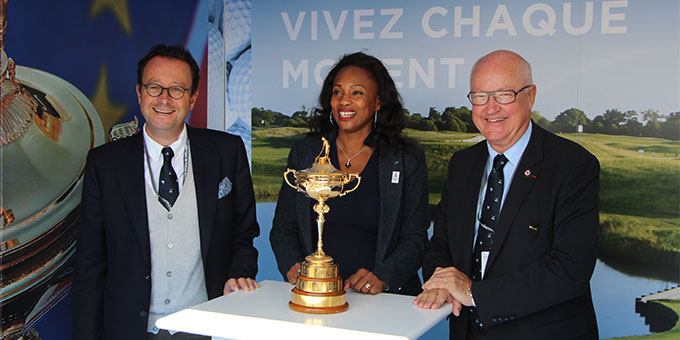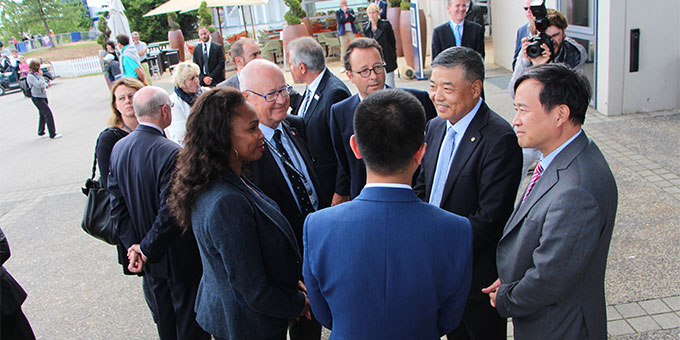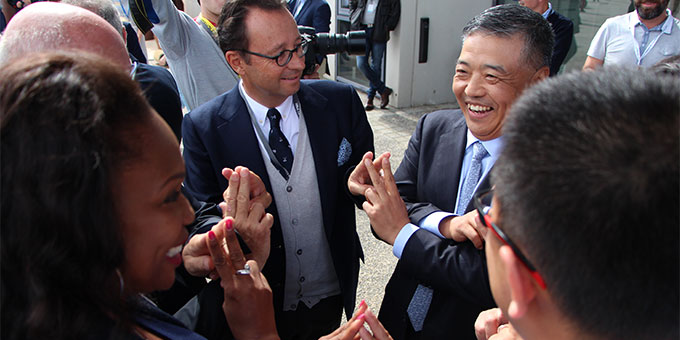Posted on July 4, 2017 in News.
The Ryder Cup 2018 is committed to the environment
Richard Hills, general manager of the 2018 Ryder Cup, allows the 2018 Ryder Cup to enter the virtuous circle of major international sporting events signatory to the charter of "15 eco-responsible commitments for sporting events".
“Beyond the spectacle of the sporting event as such, major international sporting events play a special role within our country. They represent a showcase for France and thus participate in its international influence. By mobilizing the public and the enthusiasm they arouse, they invite social mix and strengthen national solidarity. Considered a model of organization, they can sustainably shape the behaviors and habits of spectators and partners, thus helping to change social norms. Their positive spin-offs and legacy can be significant and long-lasting.
However, major international sporting events can, like any human activity, have negative effects on the environment. It appears necessary to minimize this negative impact or even reverse it. Aware both of this responsibility and of the exemplary role of their international events, the organizers who have signed these "common commitments" choose to take part in this ambitious dynamic of eco-responsibility driven by the Ministry of the City, Youth and Sports. This document is the fruit of a fruitful collaboration between this ministry and the organizers of major international sporting events.
We, eco-responsible organizers of major international sporting events, we undertake to do everything in order to achieve the following 15 objectives for which the organization is responsible, for all the stages of assembly, development and dismantling of the event (excluding construction of infrastructure). For this, and in order to ensure effective and efficient work, we are committed to measuring and monitoring these objectives using indicators. These indicators could be defined collectively with all the signatories: the organizers, WWF and the ministry responsible for Sports. On the anniversary of the signing, we undertake to carry out an annual review of the actions or programs implemented. These reports will allow, collectively, to revise, if necessary, the quantified objectives of these commitments and the indicators selected. "
- 50% minimum responsible feeding.
- 80% minimum of trips made in active mobility, public transport or carpooling
- 80% of purchases incorporating CSR selection criteria.
- 25% less waste and 60% reused, recycled or recovered waste.
- 100% of natural sites respected.
- 100% of energy and water consumption controlled and optimized.
- 1 “eco-responsible” innovation (at least) tested during the event.
- 1 or more sports ambassadors for the eco-responsibility of the event or the discipline.
- 100% of sites dedicated to the public accessible to people with disabilities.
- 100% of sports shows incorporating an action promoting accessibility for all.
- 100% of valued volunteers.
- 1 engagement (at least) in a united cause.
- 1 action (at least) promoting gender parity in positions of responsibility.
- 1 “sustainable development” referent identified in the organization.
- 1 action or 1 program (at least) to raise awareness of sustainable development.
The Evian Resort Golf Club launches the Performance Program
Taylor Pendrith winner at the end
Adrian Otaegui crowned at the Volvo China Open














